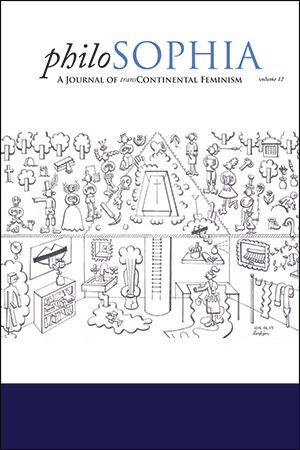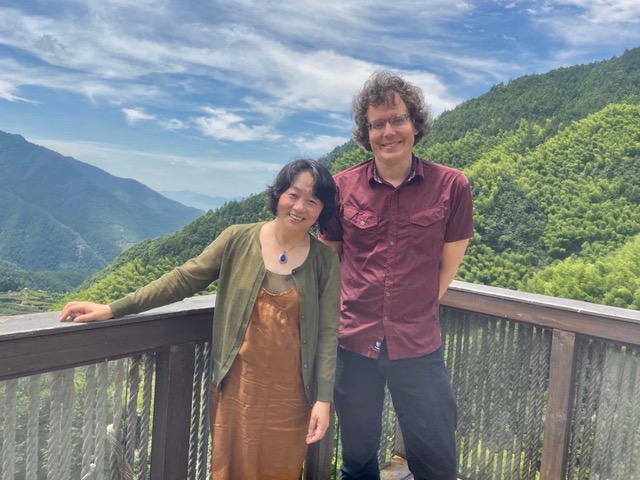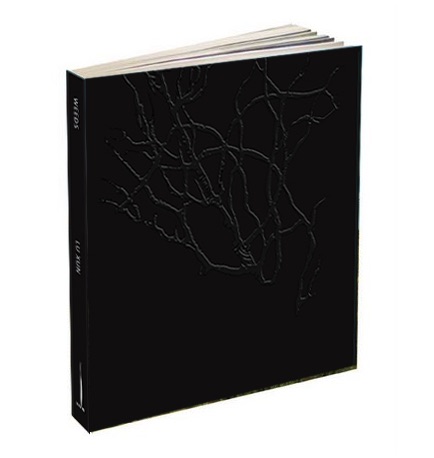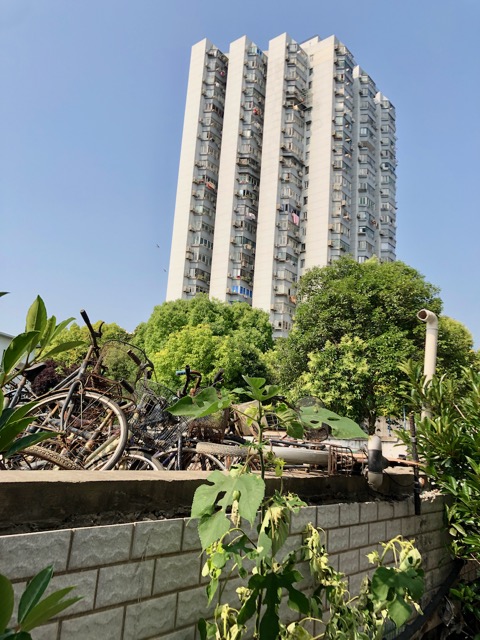I’m grateful and pleased not only to have my own work in the latest issue of philoSOPHIA, but also to share space with the writer and artist Han Bo alongside scholars and translators Sun Dong, Yuan Gao, Yuming Piao, and Yizhong Ning in a special forum focused on Han Bo’s China Eastern Railway 《中东铁路》 cycle of poems. (I post this a day after having received here in Shanghai the physical copy of the journal — physical mail between the US and China seems to arrive later and later.)
Philosopher, translator and theorist Kyoo Lee — “translingual reader of all things poetic as well as prosaic” — proposed and edited the project a year or so after I gave a talk with her at Fudan University on poetry and translation for a graduate seminar led by Bao Huiyi. In On & Off the Rails: Notes on the Practice of Poetry & Translation in which I talked about a set of in-progress translations of Han Bo poems that Monika Lin and I would later publish as The China Eastern Railway.
Kyoo was fascinated by the dense wordplay within the poems and how it sustains multiple, proliferating readings of a text that, on the surface, is a poetic travelogue tracing 2012 journey tracing the historic route of a built by imperial Russia, seized by Japan, and which played a complex role in the convulsive sequence of transitions from the faltering Qing to the shaky Republic to a doomed Manchukuo and then on into the volatile stages of revolutionary and post-revolutionary PRC history.
Kyoo, as she notes with coeditor Alyson Cole, was particularly interested in how the nine-poem cycle can be read in (troubled and unsettling) terms of gendered and sexed identities and forms of production and reproduction:
The last entry in the tranScripts in this issue is a new category, FORUM in Translation. The topic we chose for this collective experimentation is “Cycles of Engendered/Endangered Contemporaneity in Han Bo’s China Eastern Railway Poems.” Initially, we were intrigued by a fascinatingly untranslatable wordplay in one of Han Bo’s signature poems, “现代性器” (Xiandaixingqi, a compound word that carries three concepts at once — modern, xiandai; modernity, xiandaixing; and sexual organ, xinqiquan 性器官 — which could then be something like “modernisexuorganicity,” a translated neologism by Kyoo Lee). Sensing some ingenious potency of this newly cast concept, without providing any specific instructions or suggestions, we asked each invited contributor to translate the poem in their own words together with another piece by Han Bo on “器” (qi, machine, equipment, organ, container, capacity) cross-referentially for some context (as that “qi” is what is generating this sudden disorientation). We also asked everyone — David Perry, Yuan Gao, Yuming Piao, Yizhong Ning, and Dong Sun — to provide their own brief analysis of those two pieces read together as specifically and theoretically as possible. With Han Bo’s responsive reflection that follows, we now have a uniquely rich and dynamic collection of articles that freshly engages his iconic China Eastern Railway poetry through close readings and closely contextualized commentary, a polyvocal collection in translation that, in some obliquely allegorical ways, addresses some of the thorny questions on gendered modernity in China today and its share of traumatic complexity and contemporaneity. (Coeditors’ introduction)







